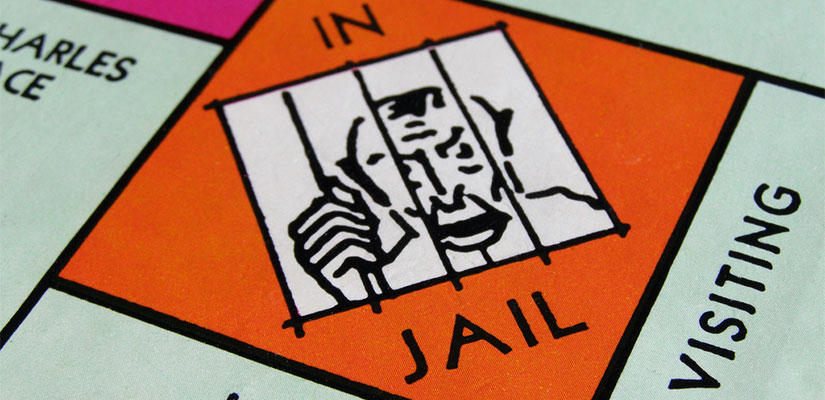Crime Conviction


Drug Possession Defense | PC 11350
Drug Possession Defense | PC 11350 If you or someone you know has been charged with drug possession in California, it's important to understand the laws and potential defenses available. In this document, we will provide an overview of drug possession defense under PC 11350. Choosing Wallin & Klarich to represent your case puts you in a better position to receive the best outcome for your case. We have over…
Read More
California Advances Bill for Legal Drug Injection Sites
California’s Existing Controlled Substances Law Currently, California law prohibits possessing or using certain controlled substances. In severe cases, violation of such a statute can be charged as a felony punishable by up to 3 years in state prison. Additionally, existing law prohibits being in any room where controlled substances are being unlawfully used or maintaining a place for the purpose of using specified controlled substances. Those who violate the law…
Read More
Prop 47 Task Forces Coming to Los Angeles County
In November 2014, California voters decided that the state’s classification of some crimes as felonies was overly harsh and needed to be changed. The voters passed Proposition 47 (also known as the “Safe Neighborhoods and Schools Act”) to reduce the penalties for certain drug and theft crimes. There law changed the way these crimes are charged. Due to the change, those that have prior convictions for certain crimes are allowed…
Read More
Should Possession of Date Rape Drugs Be a Felony?
SB 333 is a proposed law being sent to Governor Brown that seeks to increase the current penalties against those possessing common date rape drugs. The bill’s supporters say that an unintended consequence of Proposition 47 was that it reduced the penalty for those who carried date rape drugs with the intent to commit sexual assault. If passed, the bill would make it a felony to posses date rape drugs…
Read More
Could You Be Convicted of Transportation of Marijuana if You Didn’t Intend to Sell It?
The legalization of marijuana is a constantly debated issue in California. Possessing marijuana for medicinal purposes can now be legal if you are licensed by a physician, but this has created uncertainty when it comes to other marijuana laws in California. One such law involves the transportation of marijuana, and a recently passed bill clarifies what is required to convict you of the crime of marijuana transportation. Does Transportation of…
Read More
What is the LEAD Program and How Can It Impact My Case?
Law Enforcement Assisted Diversion (or LEAD) is a growing pilot diversionary program originally implemented in Seattle and now being used by some California counties. Established in 2011, the program was developed as an innovative solution to drug- and prostitution-related crimes. Criminalization and imprisonment are increasingly seen as inappropriate responses for these non-violent, low-level crimes. Between the years 1990 and 2008, over 85,000 bookings were made for drug offenses in Seattle…
Read More
What is the Drug Flakka?
A hallucinatory drug has been rising in popularity since the ban of bath salts. Reports say the drug, called Flakka, can cause users to experience super-human strength, euphoria and “excited delirium.” How popular is this high-powered drug? The U.S. Drug Enforcement Administration (DEA) reports a 780 percent jump in the number of Flakka cases reported across the country over the last three years. What are the Effects of Flakka? Flakka,…
Read More
Prop 47 Reducing Inmates, Increasing Time Served
Since it passed in November, Proposition 47 has changed a lot more than just the sentences for some low-level, non-violent offenders. It also has changed how law enforcement officers view some crimes and how long some criminal offenders stay in prison, according to a recent report by the LA Times. Prop 47 reduces some crimes from felonies and wobblers to misdemeanors, which significantly reduces the maximum penalties for these crimes.…
Read More
Should Selling Crack Cocaine and Powder Cocaine Carry the Same Punishment?
**Update: After the passing of Proposition 47, a misdemeanor charge for personal possession of cocaine is punishable by a maximum of one year in county jail.** The federal Anti-Drug Use Act of 1986 created separate sentencing guidelines for crimes involving crack cocaine and powder cocaine. California adopted the same sentences a year later, resulting in crimes involving crack being sentenced 100 times harsher than crimes involving powder cocaine. Under the…
Read More
Thousands of Drug Offenders Could Get Sentence Reductions
More than 46,000 federal drug offenders could be eligible for sentence reductions after the U.S. Sentencing Commission recently approved a plan to extend federal drug sentencing guidelines to current inmates. 1 Prisoners who are eligible for sentence reductions will not be released until November 2015, giving judges the time necessary to review candidates and allow prosecutors to object if there are concerns about any inmates. 2 The commission's unanimous vote…
Read More